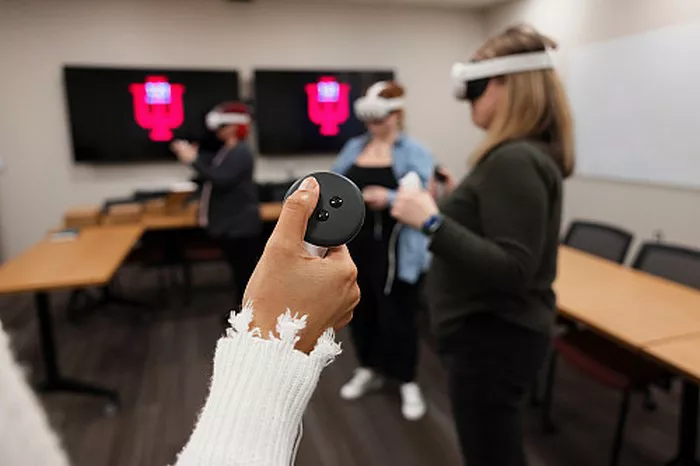In a groundbreaking effort to reduce healthcare-associated infections, infection control experts at Mass General Brigham have created a virtual reality (VR) training tool designed to educate clinicians on essential infection prevention practices. The immersive program focuses on proper cleaning and disinfection of portable medical equipment—a critical but often overlooked factor in the spread of infections within hospitals and clinics.
The VR tool was successfully piloted across seven healthcare facilities nationwide. Published in Infection Control & Hospital Epidemiology, the research team aims to increase staff competency through this innovative training method, ultimately improving patient safety.
Addressing a Critical Gap in Infection Control
“Devices such as blood pressure cuffs, glucometers, and portable imaging machines are ubiquitous in healthcare settings,” said Dr. Erica S. Shenoy, MD, PhD, chief of Infection Control at Mass General Brigham and senior author of the study. “Yet multiple studies reveal consistent failures in properly cleaning and disinfecting these devices, contributing to healthcare-associated infections.”
Healthcare-associated infections affect approximately 1 in 31 hospitalized patients, causing nearly 100,000 deaths annually and incurring $28.4 billion in direct medical costs. Research shows that up to 75% of these infections could be prevented by following core infection control measures. Furthermore, studies have found between 25% and 100% of portable medical equipment contaminated, highlighting its role in infection transmission.
An Immersive Learning Experience
To tackle this problem, Shenoy and her team developed an interactive VR module that uses head-mounted displays to immerse clinicians in a simulated inpatient environment. The module employs gamification and visualizes invisible contamination, allowing users to practice cleaning two key devices: a vital signs monitor and a point-of-care ultrasound machine.
“We wanted clinicians to ‘see the unseen’ risks and be fully engaged in a training experience that builds knowledge and practical skills applicable in real-world settings,” Shenoy explained.
During initial testing, 31 participants underwent training and provided feedback that shaped improvements to the module. In a second phase, 44 participants tried the revised version, with nearly 89% reporting a positive overall experience. Many praised the hands-on, immersive nature of the VR environment. While about half experienced mild motion sickness—a common side effect for new VR users—only a few reported difficulties related to navigating the virtual environment or understanding instructions.
Next Steps: Measuring Impact on Competency
Following promising user feedback, ongoing research now focuses on assessing how the VR training improves clinicians’ knowledge, skills, and competency in infection control.
“In fast-paced healthcare settings, training that reinforces muscle memory for infection prevention is critical,” Shenoy emphasized. “Our team was encouraged to see learners respond with joy and excitement, which we know boosts retention and long-term behavioral change.”
This innovative VR approach may represent a significant advance in infection control education, offering a scalable solution to reduce preventable infections and enhance patient safety across healthcare systems.
Related topics:

